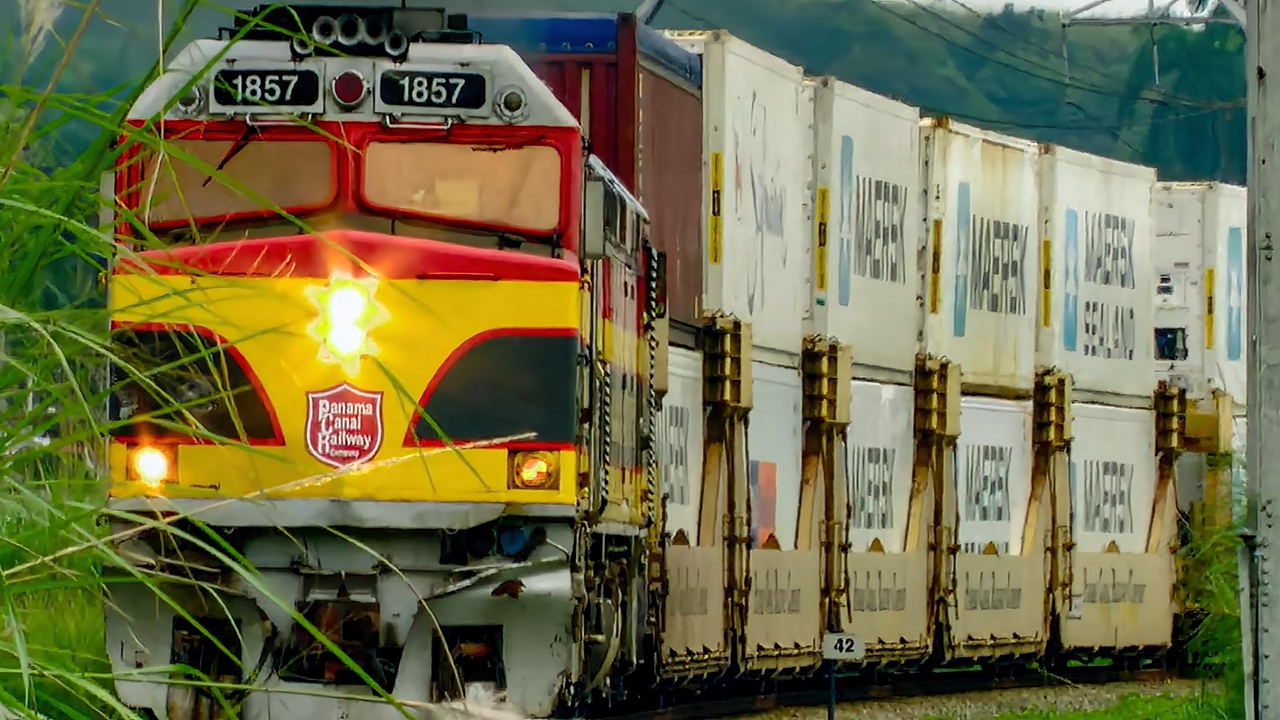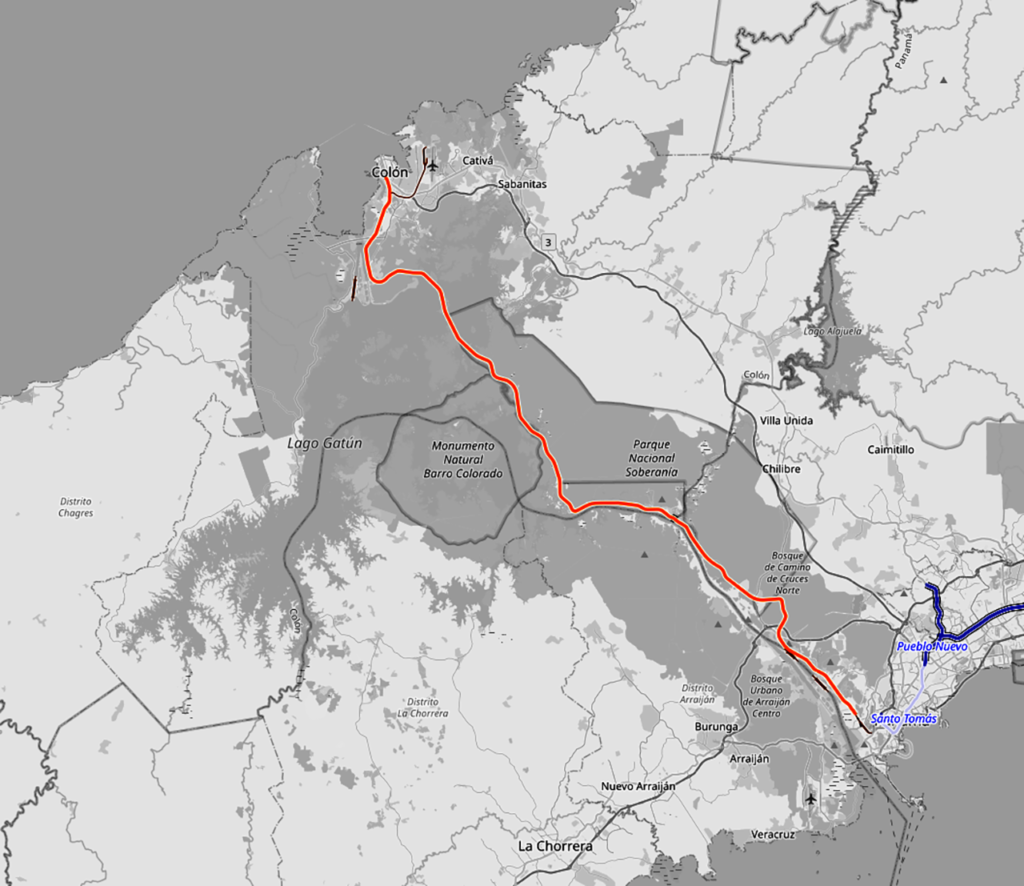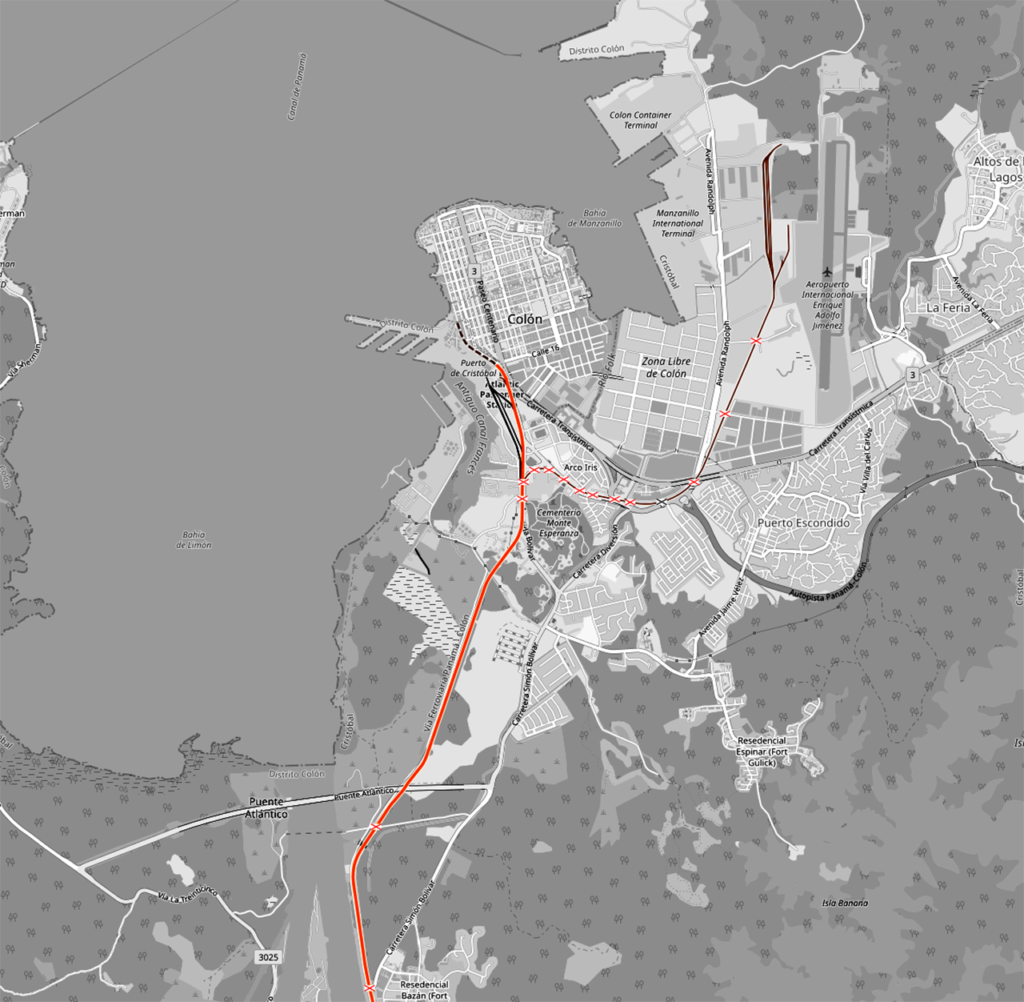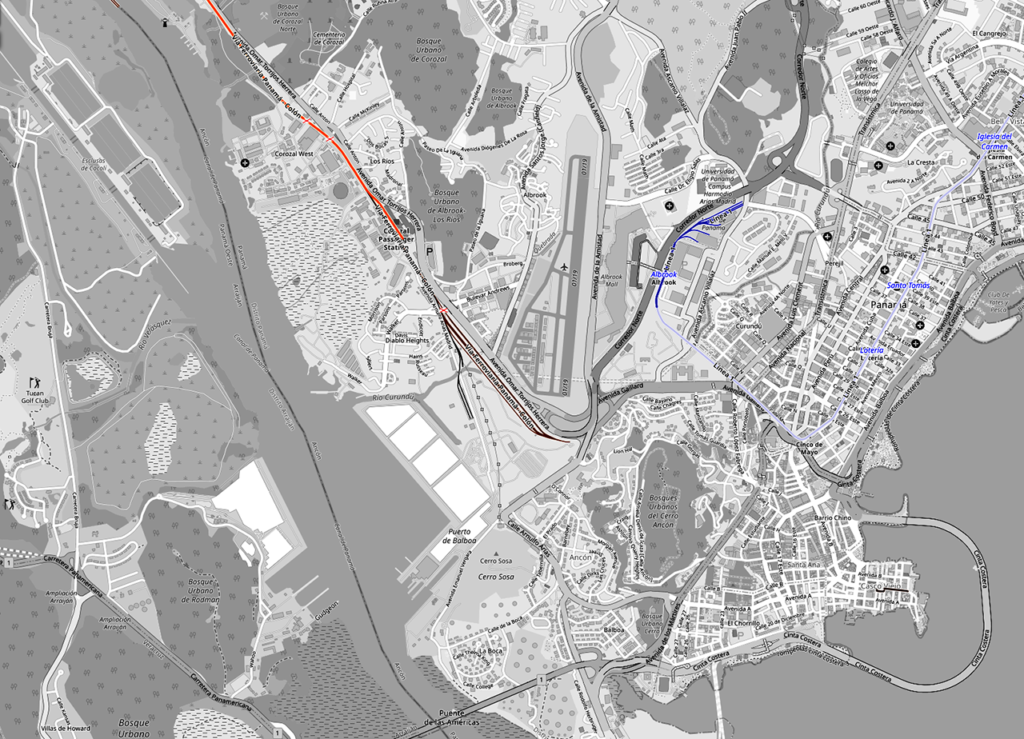
Maersk Shifts OC1 Panama Canal Traffic to Panama Canal Railway (updated Jan. 13)
Written by Nick Blenkey, Senior Editorial Consultant and Web Editor, Marine Log
Panama Canal Railway photo
While continuing Houthi attacks are having a devastating effect on Suez Canal containership traffic, natural forces, namely drought conditions, are taking their toll on container traffic through another vital maritime artery. Maersk on Jan. 10 told customers on one key route that it is switching cargo from the Panama Canal to a “land bridge”—Panama Canal Railway Co. (PCRC), which CPKC (Canadian Pacific Kansas City) and MiJack have jointly own under a 50-year concession since 1998.



Maersk, PCRC’s largest freight customer, issued the following advisory to customers using its northbound and southbound OC1 service, operating between Oceania and the Americas:
Reflecting on the ongoing water situation in the Panama Canal, and the possible impacts on cargo movements, we wanted to inform you of changes to services, as well as what Maersk is doing to mitigate the situation. Based on current and projected water levels in Gatun Lake, the Panama Canal Authority (ACP) has needed to make reductions to the amount and weight of vessels that can pass through the canal. While we continue to work closely with the ACP, moderating and aligning our operations to fit the changes, we have made changes to services to ensure that our customers are impacted as minimally as possible.
To ensure that your cargo continues to move with as few delays as possible, we are amending our OC1 service, operating between Oceania and the Americas. The vessels that utilized the Panama Canal before will now omit the Panama Canal and use a “land bridge” that utilizes rail to transport cargo across the 80 km of Panama to the other side. This creates two separate loops, one Atlantic and one Pacific. Pacific vessels will turn at Balboa, Panama, dropping off cargo heading for Latin America and North America and picking up cargo heading for Australia and New Zealand. Atlantic vessels will turn at Manzanillo, Panama, dropping off cargo heading for Australia and New Zealand and picking up cargo heading for Latin and North America.
We understand that any delays to your cargo movements can impact your overall supply chain, and we are doing our utmost to ensure that any delays are as minimal as possible. We understand your need for further information to plan your future moves accordingly. On northbound vessels, there are no delays to cargo stopping in Philadelphia and Charleston. On southbound vessels, customers may experience some delays. Please contact your customer representative for further information on this and timeframes.
To ensure cargo moves on this route, we will be omitting Cartagena. Customers with cargo to route through Cartagena will be served through alternate vessels. Please contact your customer representative for further information on this.
We remain committed to serving your supply chain needs and will continue to operate the PANZ service from the U.S. West Coast to Oceania to provide coverage from both coasts. Additionally, we will connect ports in the Gulf to the OC1 service in similar ways to today. We are working diligently to minimize any impacts to your supply chain, and we remain in close contact with the Panama Canal Authority to ensure that we can give you timely updates. Please do not hesitate to reach out to your local Maersk teams, who can help advise on modified routes, delays, and solutions, regarding the Panama Canal.
PCRC, which handles some 300,000 containers annually, could experience traffic growth stemming from the canal’s water level problems. “We never had this opportunity set before, not only to continue to do business with our primary customer there, which is Maersk, but also for the other steamship lines that we have a very material commercial relationship with to enter into negotiations and discussions about bringing more traffic to that railway to grow,” CPKC President and CEO Keith Creel said at the MARS (Midwest Association of Rail Shippers) Winter 2024 Meeting. “We’ve got one customer, it’s making money, it’s doing well. It was a great investment. But in my head, I said, how do you grow it? But little did I know. You don’t know what life has in store for you.”
(Railway Age Editor-in-Chief William C. Vantuono contributed to this story)



